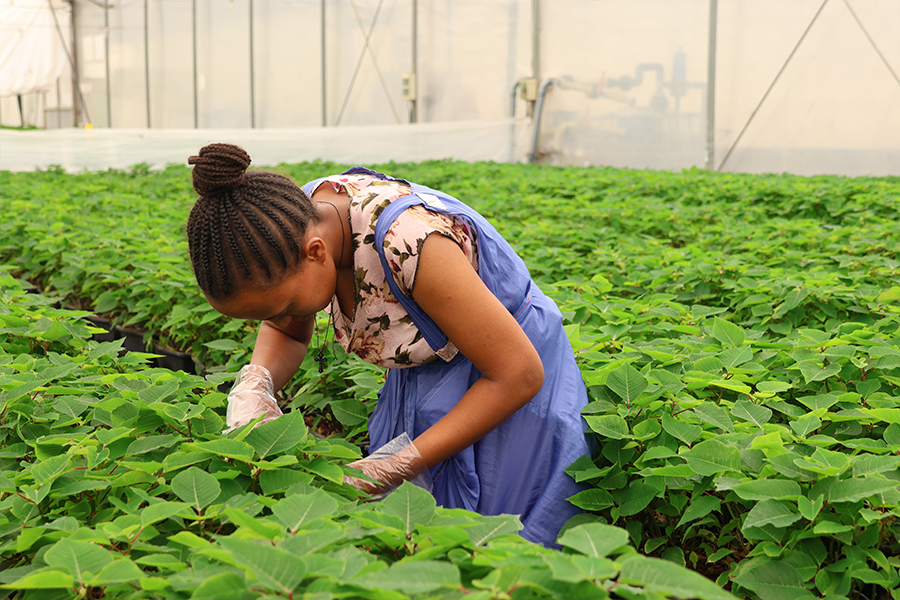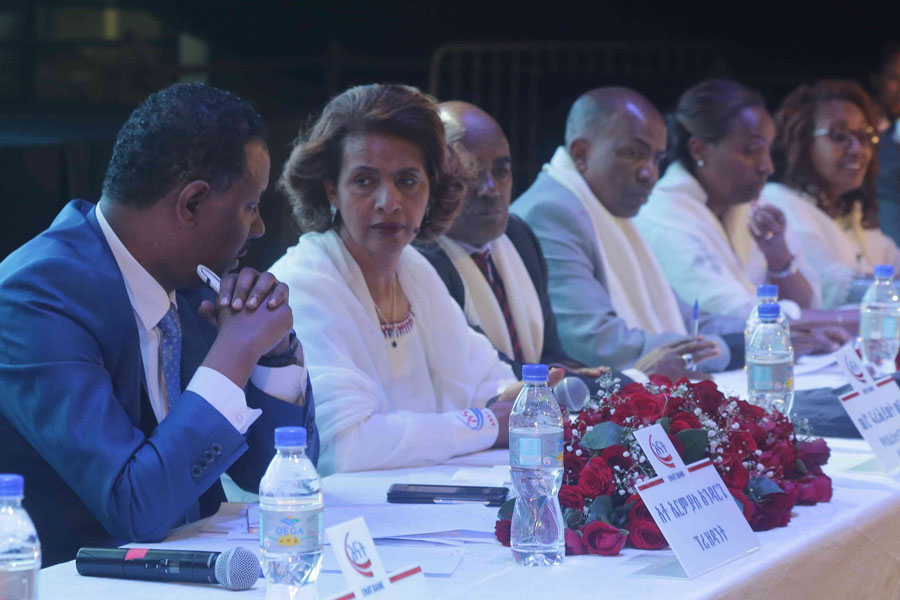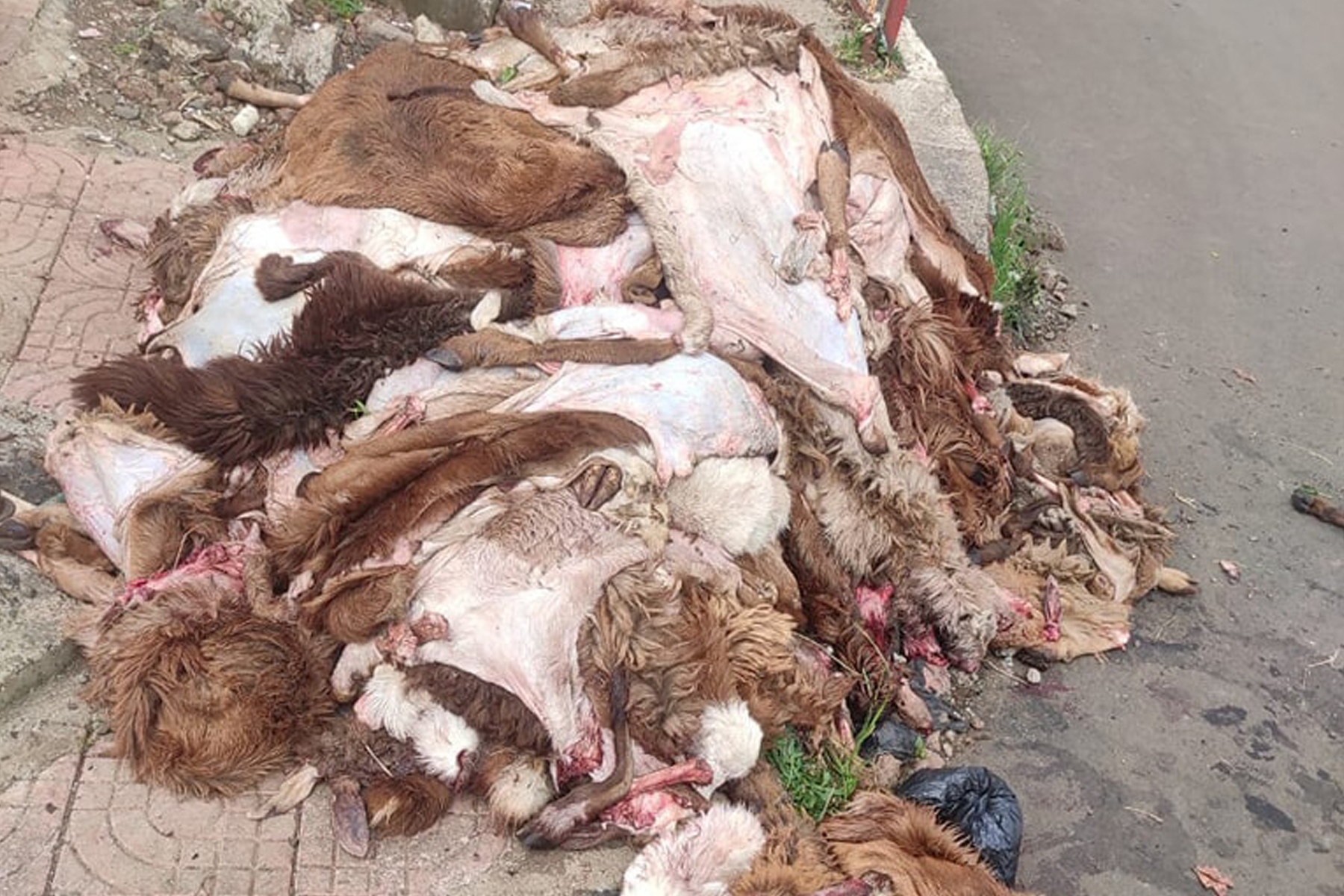
Obituary | Nov 29,2020
Most people who want to bring radical change to their community want to start a revolution. Bogaletch Gebre went at it in a different way. She knew it is evolution that works. So the first thing she did was approach the elders of her community for a meeting. She addressed them in perfect Kembatta, the local language, fluently. Bogaletch never dropped in an Amharic or English word when speaking her native tongue.
What she wanted to change was such a celebrated culture of the community many could not believe that she dared to broach the subject to the elders. In the Kembatta culture female circumcision used to be a rite of passage. It is celebrated with so much fanfare and ceremony that girls used to look forward to the initiation ceremony. She was daring to propose the radical idea that this tradition needs to change, because it is harmful to girls.
The elders had never heard anything like it. But they were impressed with Bogaletch’s manners. She was very respectful of the community, its culture and its leaders. They could see she was no raving revolutionary. And yet what she was asking was nothing short of a cultural revolution.
They posed a question that would test her commitment to the community. They told her that she was changing their culture when they did not even have a bridge over which their children could cross the river to go to school. Help us build a bridge first, they said. Bogaletch promised to do just that.
She raised the funds and built the bridge, proving her commitment to the community and earning the trust of the elders. “She was so patient and persistent,” said Seblewengel Daniel (PhD), a relative who knew her well. “She believed that change has to come from within the culture,” she added.
Bringing that change was the cause Bogaletch dedicated the latter part of her life to. In 1997 she established the non-profit organisation Kembatti Mentti-Gezimma-Tope (KMG), a name taken from a phrase in the oral language of Kembatta that reflects the power women generate when working together.
KMG’s crowning achievement is the reduction of Female Genital Mutilation (FGM) from nearly 100pc to three percent in its areas of operation. It has also built the only mother and child hospital in the region, planted nine million indigenous trees, built a school and provides help on HIV/AIDS prevention and care.
Such achievements would have been thought of as farfetched when a little girl was born to a farming family in Zato village of Kembatta District about 370Km southwest of Addis Abeba, in 1953. Her mother was Lonseke Ayemo and her father, Gebre Kabre. She was one of 14 children, most of whom died in childhood.
But beating the odds is what Bogaletch’s life was all about. “My cousin, Boge, as we affectionately referred to her, lived a full life of successfully defying odds that were stacked against her,” said Aklilu Mulat, senior vice president of Trinity Western University in Canada. “My own mother recalls Boge’s childhood tenacity in fighting for her rights for education as a unique and endearing quality in one so young. She possessed remarkable drive, focus and determination to realize her vision," he added.
Boge was involved in a car accident in 1987. When the doctors told her that she would never walk again, she proved them wrong and later ran five marathons. She used the marathons to raise funds to start a project she had been planning for some time. KMG would eventually evolve out of this project and grow to build: a women’s centre with a vocational training school and allied, self-supporting businesses; a library and community resource centre, including a women’s dialogue house, as well as reproductive health education, mother-child health services, and an HIV/AIDS awareness prevention and control programme to include re-education to eradicate female genital excision and eliminate the domestic violence and gender-based discrimination that she grew up witnessing.
Boge excelled in school. She went on to study epidemiology and parasitology in Israel, then continued her education in the United States, where she was a Fulbright scholar and earned a master’s degree at the University of Massachusetts, Amherst. She later enrolled in a PhD programme in epidemiology at the University of California, Los Angeles (UCLA).
But more than the call of science, what she heard more loudly and answered was the call of help from the girls and women of her village. And it is as a philanthropist and human development activist that she will be remembered. “I am constantly reminded of her tenacity as a child that my mother described. It is her courage in the midst of adversity that I will always remember about her,” said Aklilu.
Bogaletch Gebre passed away in Los Angeles, California on November 2, 2019.
PUBLISHED ON
Nov 16,2019 [ VOL
20 , NO
1020]

Obituary | Nov 29,2020

Featured | Jun 22,2024

Fortune News | Apr 10,2023

Editorial | Mar 27,2021

Fortune News | Aug 08,2020

Sunday with Eden | Mar 11,2023

Fortune News | Aug 14,2021

Editorial | Oct 21,2023

Fortune News | Apr 06,2024

Fortune News | Jan 19,2019

Dec 22 , 2024 . By TIZITA SHEWAFERAW
Charged with transforming colossal state-owned enterprises into modern and competitiv...

Aug 18 , 2024 . By AKSAH ITALO
Although predictable Yonas Zerihun's job in the ride-hailing service is not immune to...

Jul 28 , 2024 . By TIZITA SHEWAFERAW
Unhabitual, perhaps too many, Samuel Gebreyohannes, 38, used to occasionally enjoy a couple of beers at breakfast. However, he recently swit...

Jul 13 , 2024 . By AKSAH ITALO
Investors who rely on tractors, trucks, and field vehicles for commuting, transporting commodities, and f...

Oct 25 , 2025
The regulatory machinery is on overdrive. In only two years, no fewer than 35 new pro...

Oct 18 , 2025
The political establishment, notably the ruling party and its top brass, has become p...

Oct 11 , 2025
Ladislas Farago, a roving Associated Press (AP) correspondent, arrived in Ethiopia in...

Oct 4 , 2025
Eyob Tekalegn (PhD) had been in the Governor's chair for only weeks when, on Septembe...